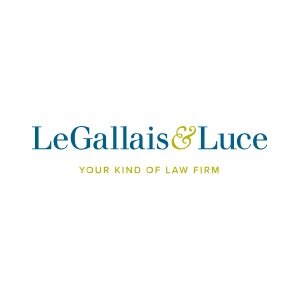Best Energy Regulatory Law Lawyers in Jersey
Share your needs with us, get contacted by law firms.
Free. Takes 2 min.
Or refine your search by selecting a city:
List of the best lawyers in Jersey
About Energy Regulatory Law in Jersey
Energy Regulatory Law in Jersey refers to the body of laws, rules, and regulatory frameworks that govern the generation, distribution, supply, and use of energy on the island of Jersey. This includes oversight of electricity, gas, and emerging renewable energy sectors. The legal system regulates the relationship between energy providers, consumers, and the Government of Jersey, ensuring that the production and supply of energy are carried out safely, efficiently, and in accordance with environmental and consumer protection standards. The framework is shaped by both local statutes and the activities of regulatory bodies, with a focus on maintaining a fair, secure, and sustainable energy market.
Why You May Need a Lawyer
Individuals and businesses may encounter situations regarding energy regulatory matters where legal advice becomes essential. Common circumstances include:
- Negotiating or drafting contracts with energy suppliers
- Disputes involving billing, service interruptions, or supply agreements
- Compliance with energy efficiency or environmental regulations
- Planning or consenting for energy infrastructure projects, such as solar panels or wind turbines
- Obtaining or renewing licenses for electricity supply or distribution
- Challenging decisions made by regulators or government authorities
- Understanding obligations under new energy legislation
- Addressing issues related to grid connections for new developments
A lawyer with expertise in Energy Regulatory Law can help interpret complex regulations, represent interests before regulatory bodies, and support both residential and commercial clients in navigating any disputes or compliance requirements.
Local Laws Overview
Jersey has a unique energy regulatory environment shaped by local laws and regulatory frameworks. Key aspects include:
- The Electricity (Jersey) Law 1937: Governs the generation, transmission, and supply of electricity, and grants powers to the Jersey Electricity Company, the island's main supplier.
- Regulation of Undertakings and Development (Jersey) Law 1973: Applies to certain energy-related business activities, especially in relation to infrastructure projects and utilities.
- Jersey’s Energy Plan: The Government of Jersey’s strategic plan aimed at delivering a sustainable, secure, and affordable energy system, with objectives around carbon reduction and renewable energy adoption.
- Office of the Jersey Competition Regulatory Authority (JCRA): Oversees the regulation of utilities including electricity, ensuring fair competition and consumer protection.
- Licensing and Permits: Energy providers and certain private installations (like large-scale renewables) are subject to licensing and regulatory compliance checks.
- Environmental Regulations: Oversee emissions, waste, and other impacts associated with energy production and consumption, aligning with Jersey’s environmental policies.
Compliance with these frameworks is crucial, as breaches may result in penalties or revocation of licenses.
Frequently Asked Questions
What is energy regulatory law?
Energy regulatory law involves the rules and regulations that control how energy is produced, distributed, and consumed. In Jersey, it ensures reliable supply, sets pricing policies, and protects consumer and environmental interests.
Who regulates energy companies in Jersey?
The Jersey Competition Regulatory Authority (JCRA) is the main regulatory body overseeing energy companies, ensuring fair competition, consumer protection, and compliance with industry standards.
Do I need a license to generate energy on my property?
Small-scale renewable installations for personal use may not require a license, but larger projects, or those supplying the grid, often need approval and regulatory compliance. Always check with the JCRA or seek legal advice.
Can I challenge my energy bill if I think it is incorrect?
Yes. Consumers can dispute energy bills by contacting their supplier first. If unresolved, complaints may be escalated to the JCRA or through legal channels.
What are my rights as an energy consumer?
You have the right to fair pricing, accurate billing, clear contractual terms, and reliable supply. Disconnections must follow strict procedures, and you can escalate unresolved disputes to the regulator.
Is renewable energy regulated differently than conventional energy?
Renewable energy projects must comply with general energy regulations, but may also be subject to additional environmental and planning rules, especially for large installations.
How do energy companies set their prices?
The prices are regulated and reviewed by the JCRA to ensure they are reasonable, reflect costs, and consider both consumer protection and business sustainability.
What should I do if I am affected by a supply interruption?
Contact your supplier to report the issue. Suppliers are required to address outages promptly. If the response is unsatisfactory, you can approach the JCRA or seek legal help for compensation or redress.
Can businesses operate their own energy supply networks?
In most cases, businesses that wish to distribute or sell energy must obtain a license and comply with relevant laws. Advice from a legal expert is recommended before starting such operations.
How does Jersey’s government support renewable energy?
The government’s energy plan encourages renewable energy, provides grants or incentives for clean technology, and sets targets for reducing carbon emissions. Permits and compliance with regulations still apply.
Additional Resources
For further information and assistance with energy regulatory matters in Jersey, consider these resources:
- Jersey Competition Regulatory Authority (JCRA) - Main regulator for energy and utilities in Jersey.
- Government of Jersey - Department for the Environment - Responsible for environmental policies and energy planning.
- Citizens Advice Jersey - Provides guidance on energy consumer rights and how to resolve disputes.
- Jersey Electricity Company (JEC) - The primary energy supplier for electricity services and customer support.
- Local legal practitioners - Lawyers specialising in regulatory, environmental, and commercial law.
Next Steps
If you need legal assistance with an energy regulatory issue in Jersey, consider taking the following steps:
- Identify the specific nature of your issue, such as contractual, compliance, or dispute-related.
- Collect all relevant documents, such as contracts, bills, correspondence, and regulatory notices.
- Contact the appropriate authority, such as your energy supplier or the JCRA, to attempt informal resolution where appropriate.
- If the issue is not resolved, seek advice from a local lawyer with expertise in energy regulatory law. Many law firms in Jersey offer initial consultations to assess your situation.
- Keep detailed records of all interactions and correspondence regarding your energy issue.
Promptly addressing regulatory or legal concerns can help prevent escalation and ensure your rights and obligations are properly managed.
Lawzana helps you find the best lawyers and law firms in Jersey through a curated and pre-screened list of qualified legal professionals. Our platform offers rankings and detailed profiles of attorneys and law firms, allowing you to compare based on practice areas, including Energy Regulatory Law, experience, and client feedback.
Each profile includes a description of the firm's areas of practice, client reviews, team members and partners, year of establishment, spoken languages, office locations, contact information, social media presence, and any published articles or resources. Most firms on our platform speak English and are experienced in both local and international legal matters.
Get a quote from top-rated law firms in Jersey — quickly, securely, and without unnecessary hassle.
Disclaimer:
The information provided on this page is for general informational purposes only and does not constitute legal advice. While we strive to ensure the accuracy and relevance of the content, legal information may change over time, and interpretations of the law can vary. You should always consult with a qualified legal professional for advice specific to your situation.
We disclaim all liability for actions taken or not taken based on the content of this page. If you believe any information is incorrect or outdated, please contact us, and we will review and update it where appropriate.
Browse energy regulatory law law firms by city in Jersey
Refine your search by selecting a city.










